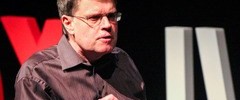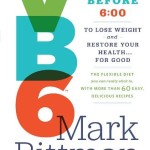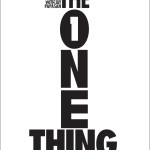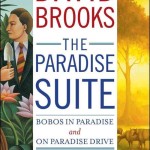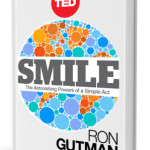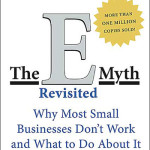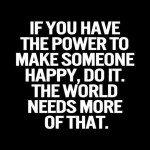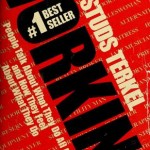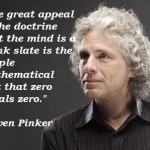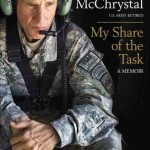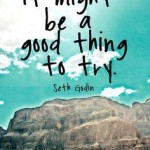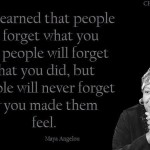“Success emerges from the quality of the decisions we make and the quantity of luck we receive. We can’t control luck. But we can control the way we make choices.”
Chip and Dan Heath, the bestselling authors of Switch and Made to Stick, tackle one of the most critical topics in our work and personal lives: how to make better decisions.
Research in psychology has revealed that our decisions are disrupted by an array of biases and irrationalities: We’re overconfident. We seek out information that supports us and downplay information that doesn’t. We get distracted by short-term emotions. When it comes to making choices, it seems, our brains are flawed instruments. Unfortunately, merely being aware of these shortcomings doesn’t fix the problem, any more than knowing that we are nearsighted helps us to see. The real question is: How can we do better?
In Decisive, the Heaths, based on an exhaustive study of the decision-making literature, introduce a four-step process designed to counteract these biases. Written in an engaging and compulsively readable style, Decisive takes readers on an unforgettable journey, from a rock star’s ingenious decision-making trick to a CEO’s disastrous acquisition, to a single question that can often resolve thorny personal decisions.
Along the way, we learn the answers to critical questions like these: How can we stop the cycle of agonizing over our decisions? How can we make group decisions without destructive politics? And how can we ensure that we don’t overlook precious opportunities to change our course?
“To make good decisions, CEOs need the courage to seek out disagreement. Alfred Sloan, the longtime CEO and chairman of General Motors, once interrupted a committee meeting with a question: “Gentlemen, I take it we are all in complete agreement on the decision here?” All the committee members nodded. “Then,” Sloan said, “I propose we postpone further discussion of this matter until our next meeting to give ourselves time to develop disagreement and perhaps gain some understanding of what this decision is about.”
Decisive is the Heath brothers’ most powerful—and important—book yet, offering fresh strategies and practical tools enabling us to make better choices. Because the right decision, at the right moment, can make all the difference. [From: Amazon.com]
A SMART CHOICE FOR INSIGHT INTO DECISIONS
From our career choices to significant business decisions, the evidence highlighted in Chip and Dan Heath’s new book, Decisive: How to Make Better Choices in Life and Work, is overwhelming: We often make wrong decisions.
Why are smart people (and teams) so bad at making decisions? As the Heaths explain, the normal decision process moves in four steps: 1) You encounter a choice; 2) You analyze your options; 3) You make a choice; 4) You live with that choice. Unfortunately, write the Heaths, “there is a villain that afflicts each of these stages.”
The Four Villains
When we encounter a choice, write the Heaths, we tend to frame the issue narrowly and in binary terms. For example: Should I keep an employee or fire him or her? This narrow framing, however, makes us miss other potential options. Perhaps the employee can be reassigned to another position that better fits his or her skills.
“Any time in life you’re tempted to think, ‘Should I do this OR that?’ instead, ask yourself, ‘Is there a way I can do this AND that?”
The WRAP Process
Likewise, when we analyze our options, we often only look for information that confirms our assumptions and predispositions rather than truly looking for the best information that will reveal the right choice. In the third step of the process, when we make the choice, we let short-term emotions guide our decision instead of using the information we have wisely. Finally, we confidently live with the bad choices that we make because we firmly believe that we know what will happen in the future. Framing, confirmation bias, short-term emotion and overconfidence about the future, according to the authors, are the four villains of decision making that lead us to the wrong choices.
In Decisive, the Heath brothers offer a clear step-by-step process for defeating the four villains. The authors’ first step is to widen your options — to overcome the tendency to narrowly frame issues into binary options. One solution is to multitrack, that is, to actively pursue several options at the same time. The second step is to reality-test your assumptions rather than just looking for confirmation of your preset ideas. One suggestion is to ensure that decision making includes a “devil’s advocate” step in which counter arguments are considered.
“Multitracking keeps egos in check. If your boss has three pet projects in play, chances are she’ll be open to unvarnished feedback about them, but if there’s only one pet project, it will be harder for her to hear the truth. Her ego will be perfectly conflated with the project.”
The third step in the anti-bias process is to attain distance before deciding. By giving yourself some distance from the decision, you can diffuse the short-term emotion that might lead you to the wrong choice. Finally, the fourth step in combating the four villains is to prepare to be wrong. Plan for an uncertain future rather than believing that you can see into the crystal ball.
This four-step process (Widen your options; Reality-test your assumptions; Attain distance before deciding; Prepare to be wrong) is summarized in the acronym WRAP, which, the authors note, conveys a “process that ‘wraps’ around your usual way of making decisions, helping to protect you from some of the biases we’ve identified.” As in their two previous bestsellers, Switch and Made to Stick, the Heaths build on extensive academic research to create an engaging, focused process for resolving the issue at hand. Since there is no more important an issue for any of us than making the right choices at the right time, however, Decisive is a book that should reach far beyond the business audience. [From: Summary.com]
“When the researchers compared whether process or analysis was more important in producing good decisions—those that increased revenues, profits, and market share—they found that “process mattered more than analysis—by a factor of six.” Often a good process led to better analysis—for instance, by ferreting out faulty logic.”
Pundits advise us to make decisions by following our heart or instinct, but is such irrational behavior really wise? Co-authors Chip and Dan Heath (Made to Stick; Switch) don’t think so. The Stanford professor and Duke University senior fellow maintain that our brains often lead us in the wrong direction—and they can prove the point by citing ample scientific research. To neutralize these dangerous impulses, their new book provides four principles that can set us on the path to make more informed, successful decisions in every arena of our lives. [From: Barnesandnoble.com]
“Confirmation bias is probably the single biggest problem in business, because even the most sophisticated people get it wrong. People go out and they’re collecting the data, and they don’t realize they’re cooking the books.”
The Heath brothers, a Stanford University Graduate School of Business professor and a senior fellow at Duke University’s Center for the Advancement of Social Entrepreneurship respectively and coauthors of Switch and Made to Stick, tackle the problems of decision-making, and all the failures that come with it. To help with the decision making process, the authors approached it from four principles that they refer to as the “WRAP model”: Widen your options; Reality test your assumptions; Attain distance before deciding; and Prepare to be wrong. Each principle is given several chapters, with examples provided for putting these approaches into practice. Breaking out of a narrow framework to recognize other options, for example, is approached through methods such as considering opportunity costs and the vanishing options test. The writing is humorous and often surprising, a tool that the authors use to great effect when sharing such examples as David Lee Roth’s obsession with brown M&Ms. Coupled with their insightful analyses, the book proves particularly insightful. [A Review from Publishersweekly.com]
“Good ideas are often adopted quickly. When all retailers adopt centralized checkout as a “best practice,” it’s no longer a competitive advantage for anyone.”
A manual on how to become more rational when facing difficult decisions at work and in your personal life. The brothers Heath (Switch: How to Change Things When Change Is Hard, 2010, etc.) are a writing team with a couple of best-selling business titles under their belt. Chip, a professor at Stanford Graduate School of Business, and Dan, a senior fellow at Duke’s Center for the Advancement of Social Entrepreneurship, specialize in writing about how human behavior affects organizations. Their present collaboration examines a variety of decision-making processes in business and personal life – whom to hire, which job to take, which schools to apply to, whom to pursue a romantic relationship with – and argues that those processes matter more to the outcome than the decisions themselves. The Heaths argue that humans are hampered by four “enemies” of decision-making rooted in our unconscious behavior: narrow focus, confirmation bias, short-term emotion and overconfidence in the outcome. They propose a four-step model called WRAP (“Widen your options, Reality-test your assumptions, Attain distance before deciding, and Prepare to be wrong”) that they believe provides a template for good decision-making. All this is presented in the introductory chapter. The rest of the book fleshes out the Heaths’ thesis with dozens of examples of best practices – e.g., Sam Walton’s bus tour of competitors to decide how to speed customers through checkout lines; an Intel executive’s insight that enabled him to drop a safe product line and focus on a riskier one; a San Diego nonprofit’s struggle to decide to stick with their increasingly successful local mission or attempt a national one. Readers approaching this book because they have a pressing decision may be annoyed by the Heaths’ lumbering pace, but for those who want to improve decision-making overall, the workshop style of the narrative should prove helpful. [From: Kirkusreviews.com]
“One solution to this is to bundle our decisions with “tripwires,” signals that would snap us awake at exactly the right moment, compelling us to reconsider a decision or to make a new one. Think of the way that the low-fuel warning in your car lights up, grabbing your attention.”

